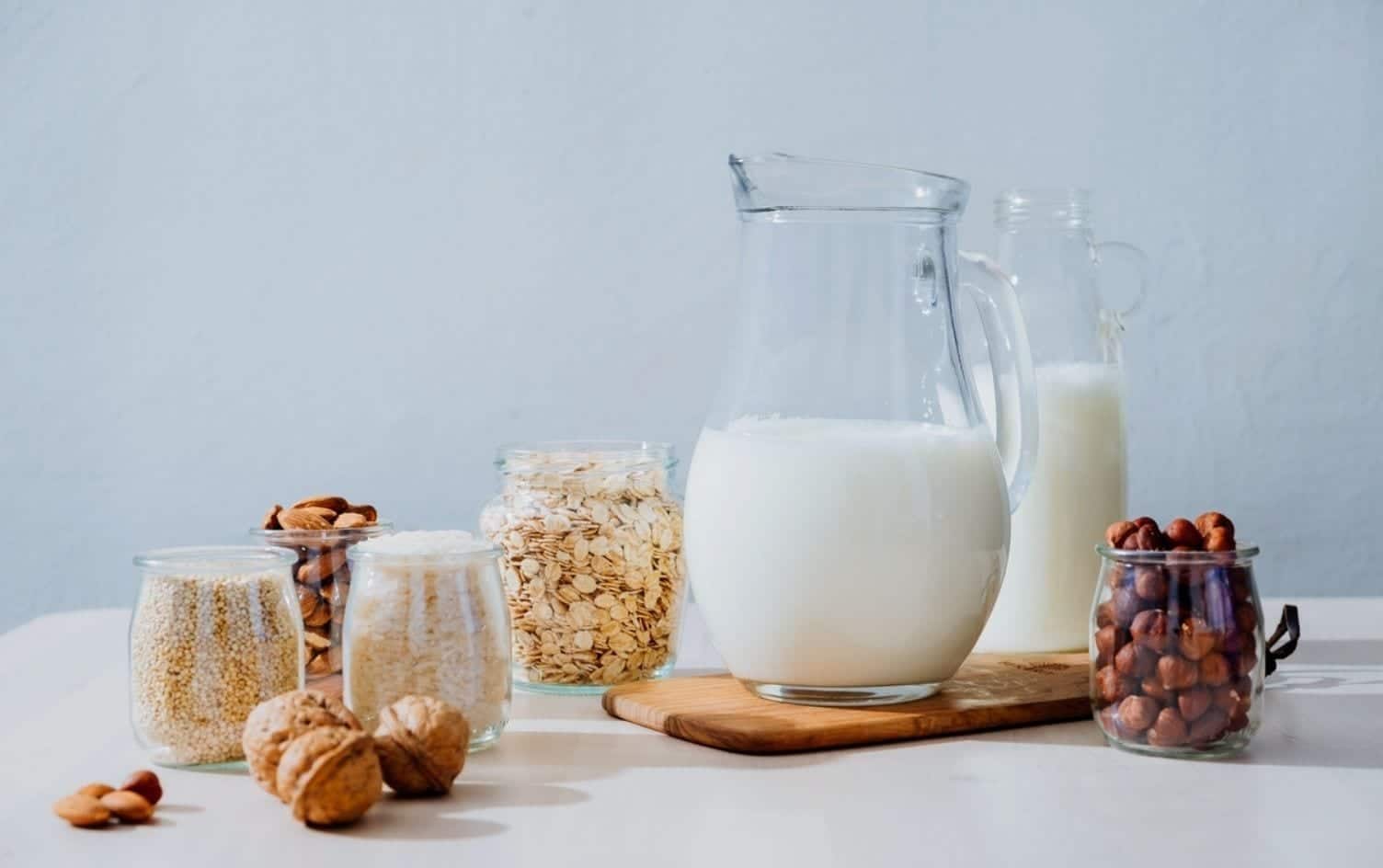Plant-based milks have seen a rapid rise in popularity in recent years at the expense of the dairy industry. This switch to dairy-free alternative milks comes from a desire to improve our environment and personal health. Many athletes restrict or forgo dairy in an attempt to feel better; clear the skin, eliminate bloating, reduce inflammation, improve clarity, promote better breathing, lose weight and ultimately have better athletic performances.
For the lactose intolerant, foregoing cow’s milk can lead to less gastric distress. Outside of lactose intolerance, there is very mixed scientific research linking milk consumption to any negative health outcomes. However, it is an alluring thought that simply ditching cow’s milk for almond milk has the potential to provide so many benefits.
Beyond potential health benefits, plant milks are a popular way to reduce your environmental impact as plant alternatives produce a much smaller carbon footprint. For those looking to experiment with a dairy-free lifestyle, it is important to note that plant milks are not a nutritional one-to-one replacement for cow’s milk.
PROTEIN
One of the biggest differences between cow’s milk and plant milks is the protein content. Athletes need 0.8–1.2 grams of this muscle-building macronutrient per kilogram of body weight to promote repair from strenuous workouts, build muscle mass and maintain a lean body mass. Cow’s milk has 8 grams of protein per 1 cup (237ml) serving while oat milk has 3 grams and almond milk only has 1 gram per serving.
Whey protein, found in animal milk, is a very good source of leucine. Leucine is one of the branch chain amino acids known to promote muscle recovery, especially after high-intensity training. Plant sources of leucine include soy protein isolate, tofu and beans. To replace dairy with a plant alternative without sacrificing protein intake, make sure to increase servings of the protein elsewhere in the diet, look for a plant-based milk with added protein or add a protein powder.
CARBOHYDRATE
Milk provides roughly 12 grams of carbohydrates per serving. These carbohydrates are essential for providing energy to be used in intense bouts as well as replenishing energy stores. Many athletes use milk in pre-workout cereal or lattes and post-workout shakes to boost carbohydrate intake.
Depending on which type of plant milk you use, you might miss out on this performance nutrient. For example, almond milk only contains 3.5 grams per serving, which does not offer a good energy boost from carbohydrates. Instead, oat milk would be a better option around workouts as it supplies 16 grams of carbohydrate per serving.
FAT
Cow’s milk is available in a range of fat contents, from non-fat to 4% milkfat (0–8 grams) per serving. This makes it easy to select a fat content that works for your needs. Some athletes benefit from higher fat, higher calorie milks to help sustain high volume, endurance activities. Fat also helps provide satiety, helping you to feel fuller for longer without snacking or consuming large portion sizes.
Plant milks range in fat depending on the type. Almond milk has 3 grams, coconut has 4.5 grams and hemp milk has 7.3 grams of fat per serving. Endurance athletes looking to grab a latte during a long ride would benefit from an oat milk order while power athletes might prefer the low fat content of rice milk.
VITAMIN D
A main reason milk is promoted as a high source of nutrients is the vitamin D content. Vitamin D is associated with bone health, mood and even has ergogenic performance effects such as enhancing skeletal muscle function for higher power and force outputs. Adults need 400–800 IU/day of this vitamin and according to the National Institutes of Health, many adults fall far below that intake range from food sources alone.
Drinking 3 cups (710ml) of cow’s milk a day would provide roughly the needed intake of vitamin D. Soy milk has a similar vitamin D content to cow’s milk and is a good option for those training indoors, living in gloomy climates, or unable to obtain other food sources of the nutrient such as fish and mushrooms. Due to the known importance and insufficient intake of vitamin D, some plant milks are being fortified with the nutrient; another reason to check the nutrition label of your favorite variety.
READ MORE > WHAT TO LOOK FOR IN NON-DAIRY PRODUCTS
CALCIUM
Calcium is needed for strong bone health, proper cardiac functioning and nerve impulses. It is the nutrient most highly associated with animal milk as it supplies 30% of daily needs in one cup. However, most plant alternatives are naturally equivalent or fortified with calcium that comes close to matching that of cow’s milk. For example, oat milk contains 26% of daily needs in 1 cup. It is important to check the nutrition label as hemp milk contains only 2%.
THE BOTTOM LINE
When you buy cow’s milk, you know what you’re getting: An animal product that varies in fat content depending on preference, while the other nutrients (mainly protein, carbohydrates, calcium and vitamin D) stay consistent regardless of which brand you choose. With plant milks, no FDA definition of the food product exists, allowing huge fluctuations in nutrient and ingredient content between types of plant milks and from one brand to another.
Checking the nutrition facts and ingredient label is key to knowing what each plant alternative is supplying. While it might take a bit more effort, it can work to your advantage; utilizing different plant milk types for different nutrition situations creates a more personalized nutrition intake and leads to improved performance. If you are struggling to remove dairy from your diet while still maintaining health and performance, consult a sports dietitian for assistance.
Unlock an experience that’s like having a dietitian, trainer and coach at your fingertips. Sign up for Premium for expert guidance and tools to help you reach your personal health goals.




